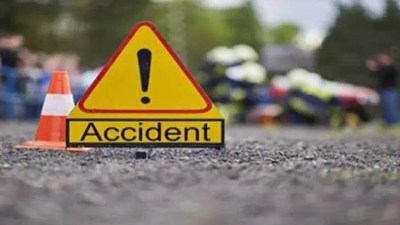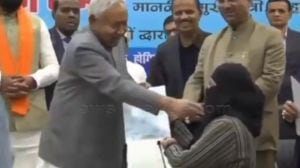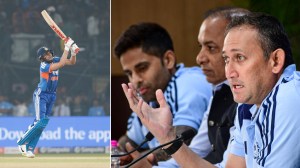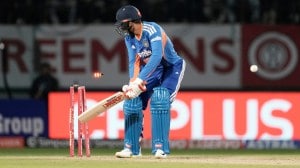ONLY two government school students have cleared NEET in Tamil Nadu this year for admission to 2,503 MBBS seats in the state’s 22 government medical colleges. Last year, the figure was 30. Namakkal, a district with among the highest-scoring students in the state board exams, of which a large percentage get into professional courses, saw 109 students clear NEET, against 957 who got into medicine last year.

But her score in NEET was just 86 marks out of 720 (the minimum is 108), making her ineligible for a medical seat. In an interview to a Tamil TV channel, Anitha had described how helpless she had felt appearing for NEET with an unfamiliar national syllabus. Following Anitha’s death, Tamil Nadu had erupted in protests over NEET.
Now, data of students who have cleared NEET for entrance into government medical colleges and private self-financing medical colleges in Tamil Nadu this year strengthens the apprehensions of experts regarding a uniform test in a country with uneven education and standards.
In Dharmapuri district, 225 students entered MBBS in 2016, this year 82 cleared NEET; in Krishnagiri, the figures stand at 338 and 82 respectively; and in Erode, at 230 and 100. In Perambalur district, one of Tamil Nadu’s most socially backward districts with a large number of first-generation learners, just 23 students have got an MBBS seat against 81 last year.
On the other hand, in an urban centre like Chennai, the number of students entering medical colleges went up more than four times from last year — 113 to 471. In Coimbatore, the second largest city in Tamil Nadu, 182 students cleared NEET, against 102 who got into medicine last year.
In its plea to the Supreme Court, Tamil Nadu had sought an extension of a year before implementing NEET. Citing the data above, state Health Secretary J Radhakrishnan points out that the social cost of the combined test in the state could be huge. At 22, Tamil Nadu has the most number of government medical colleges of any state, he told The Indian Express. Besides, it has 11 private self-financing medical colleges.
Story continues below this ad
“The state prefers admissions based on Class 12 marks. This is to have a level-playing field, considering various social systems and inequalities, and that students are deprived of coaching centres in rural areas and many have no access to any kind of training facilities besides schools,” he says.
Tamil Nadu government medical colleges charge around Rs 13,000 per annum, which make them affordable for students from less-privileged backgrounds. Pro-NEET campaigners blame the poor quality of syllabus for students of state boards not clearing NEET. But P B Prince Gajendra Babu, a leading educationist and a petitioner against NEET in the Supreme Court, points out that while the state higher secondary syllabus was last revised in 2010-11, the CBSE’s has not changed for longer. NEET is based on CBSE syllabus. “If quality is the question, why not revise the CBSE syllabus too?” Babu asks.
He also questions why the government doesn’t regulate private medical colleges, if the goal is quality education, instead of implementing an exam that limits access to government seats. According to Babu, NEET would also hurt the state system of reserving some post-graduate seats for medical graduates willing to work in primary health centres and government hospitals, who are picked after an interview process. “When the Centre insists that NEET can be the only criteria for PG selections too, it derails this quota,” Babu says.
The prestigious Christian Medical College (CMC), Vellore, has gone to the Supreme Court seeking that while it could have admissions through NEET, it should be allowed to retain an interview stage, for the same reason of picking candidates willing to work in rural areas. This year, there is only a student each in its MBBS batch and super-speciality courses of 2017, admitted through defence quota, as it is fighting against solely NEET for admissions.
Story continues below this ad
CMC has a total of 100 MBBS seats, of which 99 are vacant now. It charges a minimal Rs 3,000 per annum. “CMC has proved that it has the best selection process in the country. We have some 17 court orders endorsing our selection process. At a time when the country is witnessing incidents such as Gorakhpur (children deaths), and there is a desperate need for trained doctors in disadvantaged places, our selection process ensures doctors are ready to work in rural areas too. Even if a candidate has 2 marks less, we choose one who is trainable and deserving considering his social back ground,” CMC Director Sunil Chandy says.
“Just because you get 90 per cent, you cannot become a doctor,” he adds. “You need compassion, aptitude and a commitment to serve the underprivileged.” The Supreme Court order on the CMC’s plea is expected on October 11.
The fate of the state’s students may also be decided by two legislations floated by the AIADMK government early this year — the Tamil Nadu Admission to MBBS and BDS Courses Bill, 2017, and the Tamil Nadu Admission to Post-Graduate Courses in Medicine and Dentistry Act, 2017, that is awaiting Presidential assent. The laws envisage autonomy for the state in admissions to both undergraduate medical courses (based on Class 12 board marks) and to post-graduate courses (based on marks obtained in the qualifying undergraduate examinations).

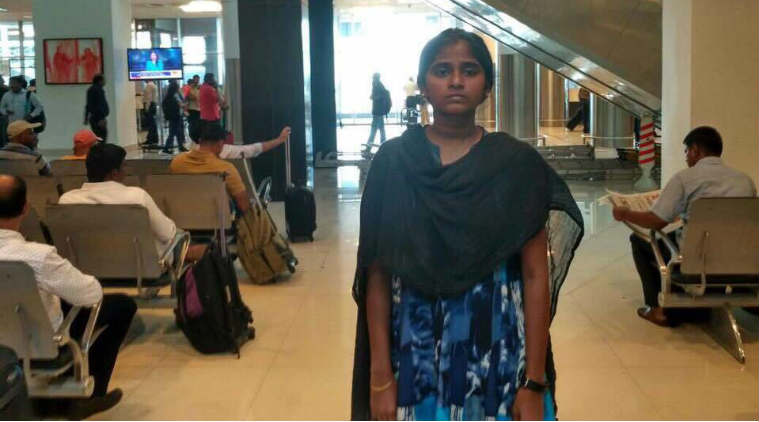 Anitha committed suicide after failing to get medical seat
Anitha committed suicide after failing to get medical seat

